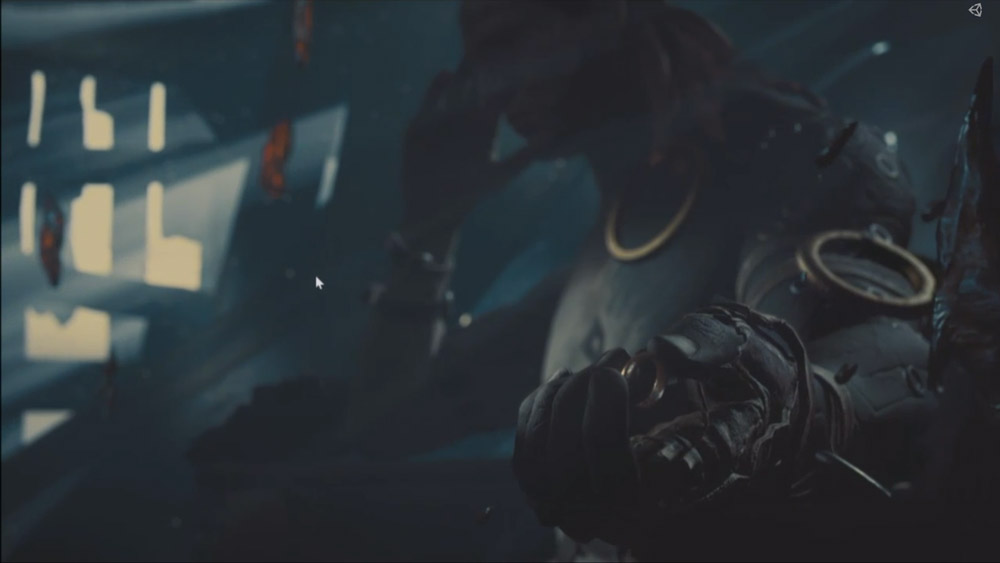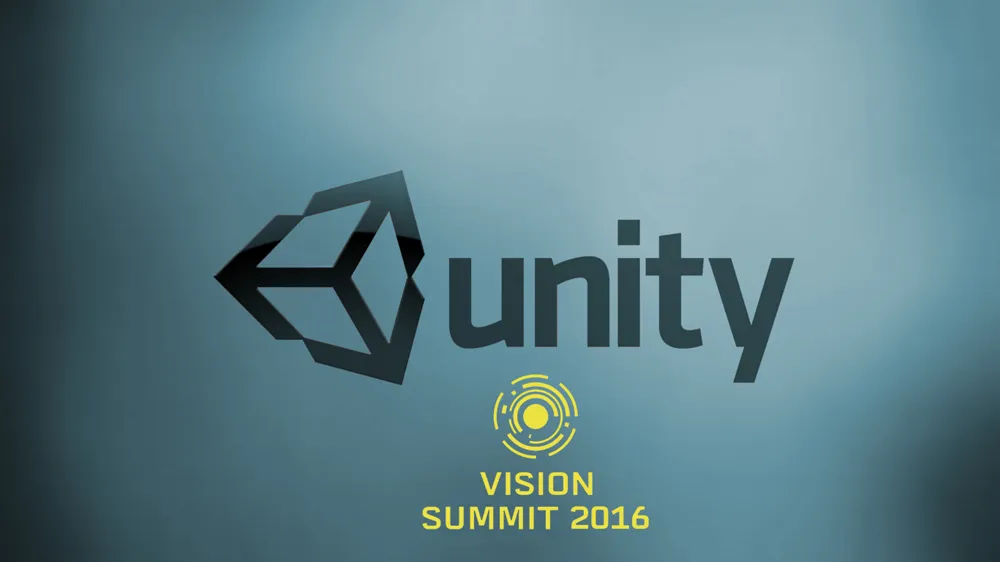A smile splits Sylvio Drouin’s face as he clinks the ice in his drink.
“Twenty two years ago I wrote a 65 page paper about how I believed VR was going to be the future,” he says. “That future is finally arriving.”

In February 2015, Drouin joined Unity as the Executive Vice President of the Unity Labs program with a focus on building the future of storytelling in VR and AR. Today he is sitting across from me, eagerly chatting about what is coming next: an accessible Unity platform built natively for VR.
“VR is a conduit to make authoring easier,” Drouin declares, and accessible VR development is exactly what Unity is aiming to create “before the end of the year.”
“Virtual reality attracts all types of storytellers, from artists to game developers” he says, “we want to make its creation accessible to them all.”
Drouin grabs my notebook and begins sketching out a rough pyramid diagram.
“There are multiple layers of storytelling in VR,” he says, writing “VR and AR” at the top of the page. He then splits it into three separate categories: “real time CGI”, “cinematic VR”, and “360º video”.
“These are the basic categories of storytelling in VR, but they are even further divided.”
He draws two subcategories below each of them “standing” and “sitting”, “no interaction” and “light interaction”, and “stereo” and “non-stereo” respectively.
“We are looking to target authoring each of these types of experiences with our Unity VR editor,” he says, setting down the pen. “When pixels move, someone can tell a story.”

In the short term the vision is fairly simple. A Unity VR Scene Editor will release this year that will allow you to manipulate scenes and work from a high level on a project in VR; leaving more intricate adjustments to a traditional flat UI outside the headset.
The slightly longer-term vision is much more ambitious.
Drouin whips out his phone to show me a conceptual visualization of their full on VR authoring tool codenamed “Carte Blanche.”
Carte Blanche appears to be designed to fit the needs of both AR and VR. Rather than relying on a tiresome UI that is based entirely in the air in front of you Carte Blanche is designed with the tabletop in mind.
In the video a user was able to select from virtual decks of ‘cards’ containing assets from Unity’s asset store and place them on the ‘table’ at bird’s eye view. When placed it would spawn the asset at the same location that it was placed. Additionally it showed the ability to paint textures, such as roads on the ground using Oculus Touch controllers. It appeared to be very similar to setting up the game board for a tabletop gaming session, which seemed to be the point.
With a press of a button the developer was able to switch between perspectives, from the birds eye perspective to a diorama-sized view, to a first person view at full scale within the scene. These different perspectives allow you to interact with the scene at multiple levels manipulating both macro and micro details in the scene. For example, you can scale items to be larger and smaller using a familiar pinch and pull gesture with your hand tracked controls.
“VR is a conduit to make authoring easier,”
But it isn’t just set decoration, Unity is working on tools for adding scripting and even custom character animation within VR as well. In the video, for example, the same card-based UI system was shown to be applied to different characters allowing them to easily set things like behaviors all within VR. Eventually -Drouin wants to add “intent-based modeling and design” to the stack, using machine learning to allow you to say ‘give me an angry, fast zombie with a green hue and a missing arm,’ to the engine and have it generate a character with that set behaviors and characteristics that you can drop directly into experience. This is something, however, that will come “way down the road” after those technologies have matured.
Right now Carte Blanche is still in the early stages of development but Drouin says the project will be finding its way into the public in 2017.
Just last week Epic announced a native VR editing tool of their own for Unreal. The tool brings “the entire Unreal editor” into VR, making it an excellent tool for the high level professional developer. Unity has a slightly different focus.
“Grand scale for VR is not everything,” Drouin suggests the most important thing is to be able to get as many content creators making content natively for VR.
Virtual reality is racing toward consumers like the Lumière Brothers’ train, but like the film industry at the time we currently stand at the infancy of learning how to tell stories in VR. Simple, accessible authoring tools will be key to the rapid creation of the language of storytelling in the new medium.
Unity plans to showcase the scene editor at the Vision Summit this week during the keynote address. They will be demoing it for some developers at the show but plan a wider roll out later in the year. UploadVR will be going hands on with the scene editor at the Summit and we will be sure to report back with our impressions.






























